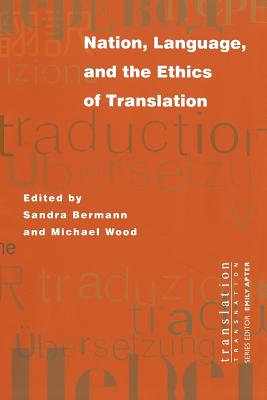In recent years, scholarship on translation has moved well beyond the technicalities of converting one language into another and beyond conventional translation theory. With new technologies blurring distinctions between "the original" and its reproductions, and with globalization redefining national and cultural boundaries, "translation" is now emerging as a reformulated subject of lively, interdisciplinary debate. Nation, Language, and the Ethics of Translation enters the heart of this debate. It covers an exceptional range of topics, from simultaneous translation to legal theory, from the language of exile to the language of new nations, from the press to the cinema; and cultures and languages from contemporary Bengal to ancient Japan, from translations of Homer to the work of Don DeLillo.
All twenty-two essays, by leading voices including Gayatri Spivak and the late Edward Said, are provocative and persuasive. The book’s four sections--"Translation as Medium and across Media," "The Ethics of Translation," "Translation and Difference," and "Beyond the Nation"--together provide a comprehensive view of current thinking on nationality and translation, one that will be widely consulted for years to come.
The contributors are Jonathan E. Abel, Emily Apter, Sandra Bermann, Vilashini Cooppan, Stanley Corngold, David Damrosch, Robert Eaglestone, Stathis Gourgouris, Pierre Legrand, Jacques Lezra, Françoise Lionnet, Sylvia Molloy, Yopie Prins, Edward Said, Azade Seyhan, Gayatri Chakravorty Spivak, Henry Staten, Lawrence Venuti, Lynn Visson, Gauri Viswanathan, Samuel Weber, and Michael Wood.











(不動產經紀人) 2025【粗體關鍵字標示必背重點】不動產經紀相關法規概要[條文解析+歷屆試題](八版)(不動產經紀人)](https://media.taaze.tw/showLargeImage.html?sc=14100124101)